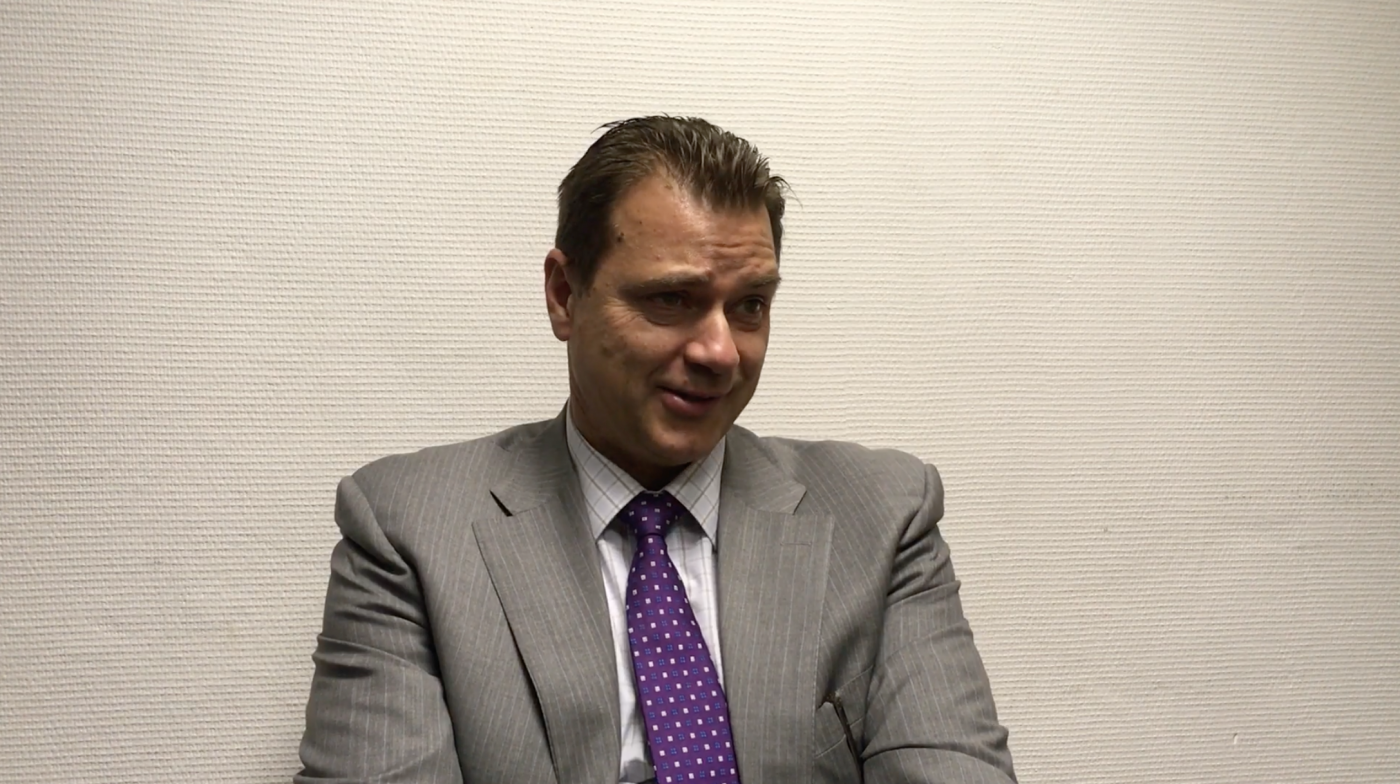#MSParis2017 – Aubagio Can Help Slow Progression to an MS Diagnosis, Researcher Says

Dr. Robert Zivadinov in an interview at ECTRIMS 2017.
Aubagio (teriflunomide) can help to delay first clinical signs of multiple sclerosis (MS) from progressing to a definite diagnosis in a person, and treatment should likely begin as soon as that first episode is confirmed, Robert Zivadinov, a professor of neurology and director of the Buffalo Neuroimaging Analysis Center, said in an interview with Multiple Sclerosis News Today.
Zivadinov spoke about Aubagio, an oral Sanofi Genzyme therapy, its ability to slow brain tissue loss, and its potential to significantly reduce conversion to a definite MS diagnosis at the 7th Joint ECTRIMS-ACTRIMS Meeting in Paris that concluded Oct. 28.
The therapy was approved by the U.S. Food and Drug Administration to treat relapsing-remitting MS in 2012, based on evidence in the Phase 3 TEMSO trial (NCT00134563) that it significantly reduced relapses and disease progression in those patients.
Aubagio was shown in the TOPIC trial (NCT00622700) to also significantly reduce conversion to MS in people presenting a first clinical episode consistent with MS.
Very early disease signs considered to be a first clinical event consistent with MS were, according to Zivadinov, “optic nerve involvement and inflammation in the optic nerve,” which is the most frequent event. “Probably 70 to 75% of patients have optic neuritis [optic nerve inflammation] during their lifetime,” he said.
“But there are other symptoms including those related to injury in the spinal cord, so motor symptoms or sensory symptoms. Or if the lesions are in … the brain, clearly [patients] would have balance problems, coordination problems, etc.,” Zivadinov added.
When asked if a person using Aubagio would never reach a clinically definite MS diagnosis, or if the drug might delay such diagnosis, Zivadinov clarified: “the drug is mostly delaying conversion to clinically definite MS. Unfortunately, I think we still don’t have a drug that has shown to stop the disease 100%.”
Nonetheless, he emphasized that “there was a significant difference in proportion of patients … [receiving] Aubagio treatment in respect to conversion to clinically definite MS [compared] to placebo.”
Zivadinov also emphasized that this is, so far, the only trial testing the effects of an oral therapy in this population of patients.
Results from the TOPIC trial also showed that Aubagio reduces the loss of cortical grey matter volume in the brain by more than 40% compared with placebo.
“That was surprising to us,” Zivadinov said, adding “we all as a community believe from [previous] studies that cortical atrophy is a late-stage phenomenon in the disease … so this is the first Phase 3 trial that looked in a pooled analysis if there was an effect of cortical atrophy on clinical definite MS development.”
The researchers found that both Aubagio doses tested (7 and 14 mg) “reduced significantly grey matter volume loss” six-months post treatment, and that this effect was maintained at 12, 18 and 24 months post treatment, Zivadinov said.
“This is certainly a very impressive finding, and I can tell you that in my entire career … I have not seen such a sustained effect of one treatment, through all time-points, with all doses, on cortical brain matter,” he said.
In the interview, Zivadinov also discussed the implications of these findings for future Aubagio research, the role of B-cells in the drug’s mechanism of action, and the link between Epstein-Barr virus (which has been associated with MS) and the development of cortical atrophy.
The researcher believes that future MS studies should focus more on the assessment of cortical atrophy. He also noted that “patients who develop more cortical atrophy are definitely those who develop more cognitive disability and physical disability,” suggesting that “to slow down cortical atrophy is definitely an important aim in future clinical strategies.”
Given the results obtained so far, Zivadinov believed that Aubagio should be used as a treatment “immediately after the first [disease] onset, if the patients met the criteria for high-risk for developing MS.”
Future plans on Aubagio include a better understanding of the correlation between the therapy, cortical atrophy, immune response, and the possible role of Epstein-Barr virus infection.
The complete interview can be seen below:






